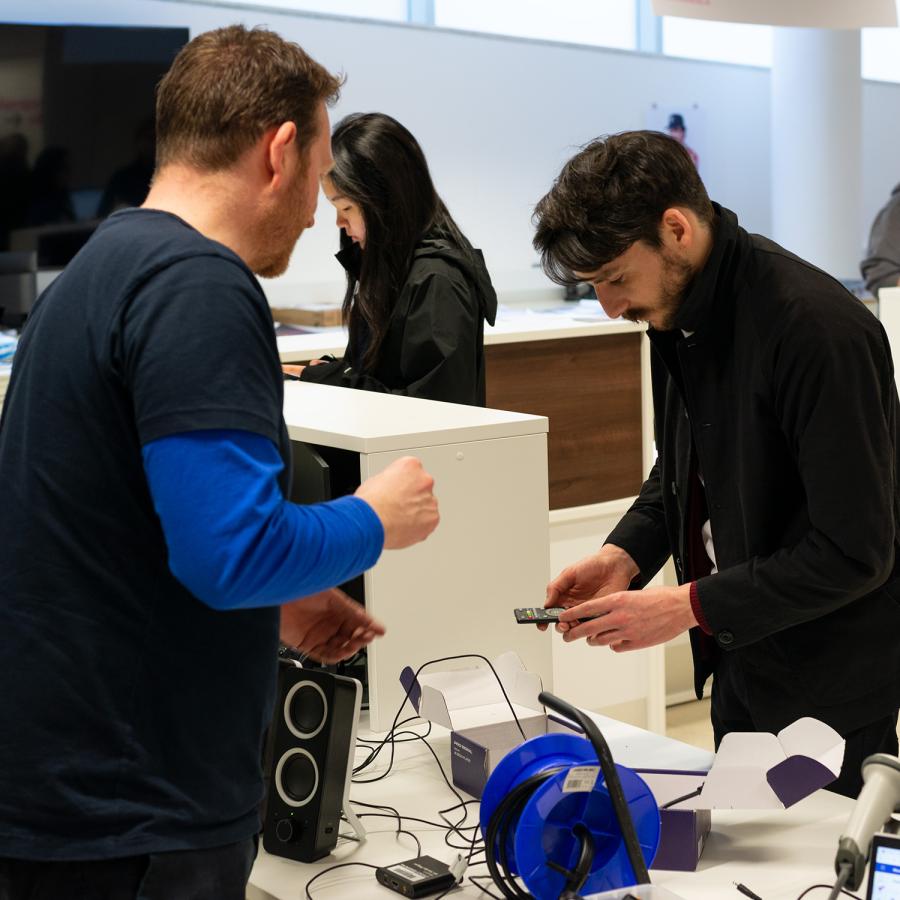Outline
We believe in creative storytelling and experimentation. We support a wide range of screen-based work which includes:
- fiction
- documentary
- drama
- experimental film
- hybrid film
On this programme, we will encourage you to:
- be inquisitive and questioning
- challenge convention and develop new approaches to filmmaking
- expand your understanding of film form and film contexts.
We do not just teach ‘how’ to push a button but ‘why’ to press it.
Through short films and creative exercises, we nurture work that questions norms and pushes the boundaries of filmmaking. These experiences will help you:
- find your own creative identities, voice and specialisation
- develop skills that will help you find work in the film and creative industries
- graduate with a clear sense of your own filmmaking practice and professional goals
By the time you graduate, you will have created a portfolio of short films in different roles. This helps you explore how every aspect of film and every role within a crew can be a means of creative expression.
We work as a film community supporting collaboration across the degree year groups. We also encourage interdisciplinary collaboration with other departments at ECA and celebrate the opportunities of studying film in an art school.
Our programme ethos is about nurturing your imagination, curiosity, and collaboration, which is underpinned by a professional and highly practical skillset.













